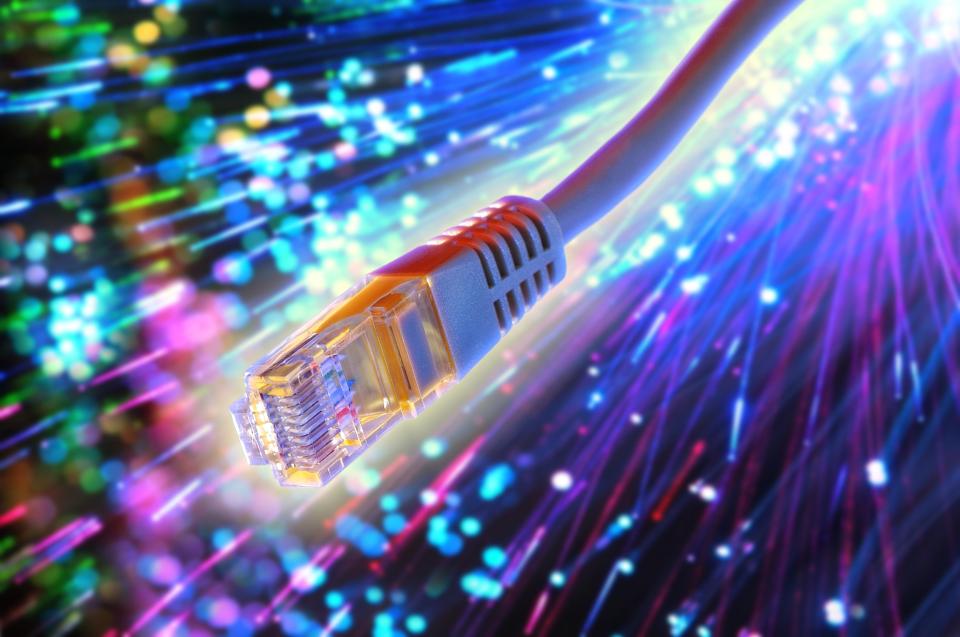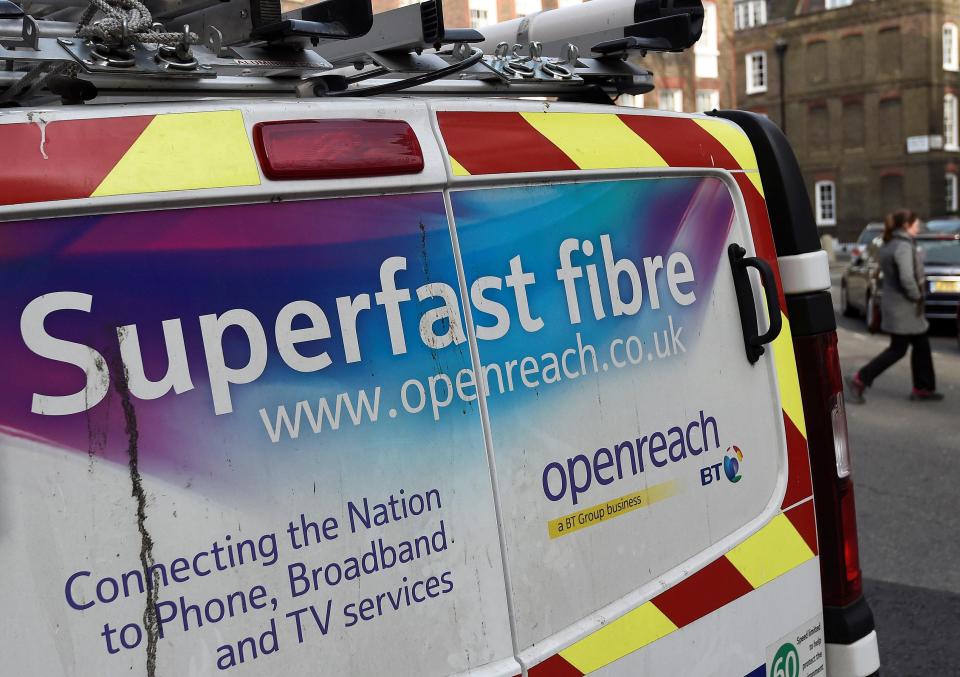Britain’s homes could get ‘super fast’ 5G boxes – with WiFi that NEVER fails
Dodgy WiFi connections could soon be a thing of the past

BRITAIN'S mobile networks are about to be transformed by 5G – and your home broadband will probably be getting a speed boost, too.
A BT exec has admitted that 5G could massively improve your home's internet, and suggested mixed broadband and 5G internet bundles could be in the works, The Sun can reveal.
The first 5G networks are expected to go live in Britain in 2019.
BT's EE has already committed to launching super-fast 5G services in 16 cities around the UK.
This will mean your smartphone will enjoy speeds so fast you could download a 4K movie in seconds.
And Pete Oliver, BT's MD for marketing, told The Sun that 5G could benefit your home internet too.
Oliver explained that home broadband can be very fast, but delivering the best speeds some properties is difficult.
"So fibre to the home – ultimately, a fibre optic cable will give you very fast, reliable speeds," he said.
"And we're rolling out fibre to the home now. We've rolled out fibre to the cabinet to 90% of the UK.
"However there are locations where it's hard to put fibre to the home. You've got to dig up the road, it's difficult."
According to Oliver, 5G will not only "offer faster speeds", but also provide "lower latency" – or lag.
"It's not just about speed, it's about how fast the data can travel," he said.
"So we think 5G will be a technology that can be used for home broadband."
Oliver imagines a future where when your broadband stops working, the 5G network could kick in.
This would be a seamless transition, meaning you always get super fast speeds at home – without ever having to manually choose your network.
"Our actual vision of what we call convergence is that we'd probably offer customers a bit of both, where we say 'hey, if your broadband doesn't work, our equipment can automatically use the mobile network – whether that's 4G or 5G – and that will provide that reliability," he said.
"If someone drills through a cable, your home broadband is going to stop working, right? But a mobile network may still work."
Oliver added: "Certainly it's a viable home broadband technology, absolutely."
What is 5G? The future of mobile internet explained
Here's what you need to know...
- 5G is a term used to describe a type of mobile internet
- It stands for "fifth generation", because it follows on from 2G, 3G and 4G internet
- The biggest advantage of 5G is that online speeds are faster
- That means you'll be able to download and uploads files, music and videos more quickly
- But it will also reduce the latency, or "lag", of connections, so there's less physical delay
- This is important for online gamers, who need their movements to be registered online as quickly as possible
- Because more data can be transferred more quickly, 5G will also enable smart cities and driverless cars
- These futuristic technologies will produce huge amounts of data, so 5G will give them a significant boost
- The UK is expected to get its first 5G networks in 2019
- But Brits will also need to buy smartphones with 5G modems that can support the technology
- We're expecting the first round of 5G smartphones in Britain in early 2019
Earlier this month, BT's EE confirmed that the UK's four capital cities – London, Cardiff, Edinburgh and Belfast – would all be getting at 5G upgrade next year.
Birmingham and Manchester have also been thrown in, bringing the launch cities up to a total of six.
An additional 10 cities will be added later on in the year, too: Glasgow, Newcastle, Liverpool, Leeds, Hull, Sheffield, Nottingham, Leicester, Coventry and Bristol.
How fast is 5G internet?
EE told The Sun that some users will experience peak speeds of more than 1 gigabit per second (Gbps).
The main improvement will be for average speeds, especially in busy areas. But speeds at the Canary Wharf trials have reached over 1.3Gbps.
At speeds of 1 gigabit per second, it would take eight seconds to download 1 gigabyte of data.
Netflix says 4K video takes up about 7 gigabytes of space per hour of footage.
So downloading an hour-and-a-half Netflix film in 4K to watch offline would require roughly 10GB of space.
With a 5G connection, that would take just 1 minute and 20 seconds.
And regular HD footage takes up about 3GB of footage per hour, so the same movie could be nabbed in High Definition roughly half the time.
MOST READ IN TECH
But speeds will eventually increase to multiple gigabits per second, once networks can support it.
For instance, Qualcomm's Snapdragon X50 chip for 5G smartphones promises around 4.5 gigabits per second, based on testing.
That could cut a 4K movie download down to around 20 seconds, if networks can beam those sorts of speeds to actual users.
Apple is expected to launch the first 5G iPhone in 2020.
Would you be interested in super fast 5G speeds? Let us know in the comments!
We pay for your stories! Do you have a story for The Sun Online news team? Email us at tips@the-sun.co.uk or call 0207 782 4368 . We pay for videos too. Click here to upload yours.















